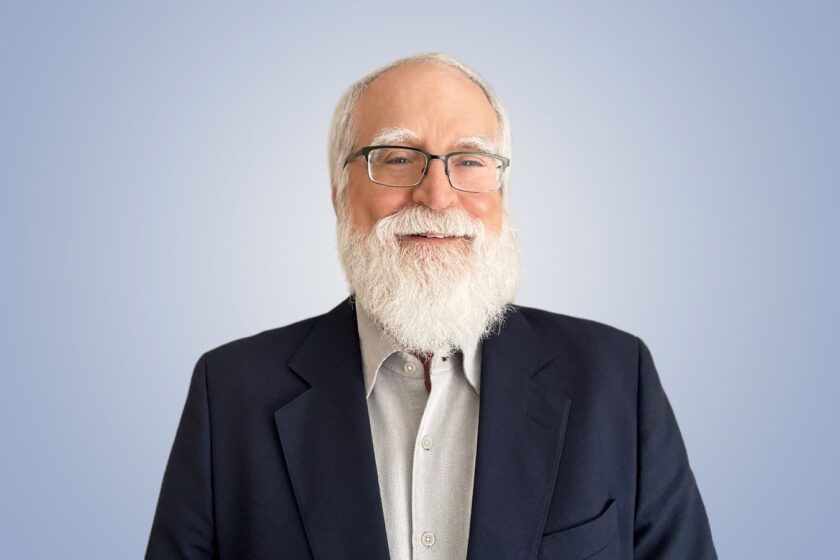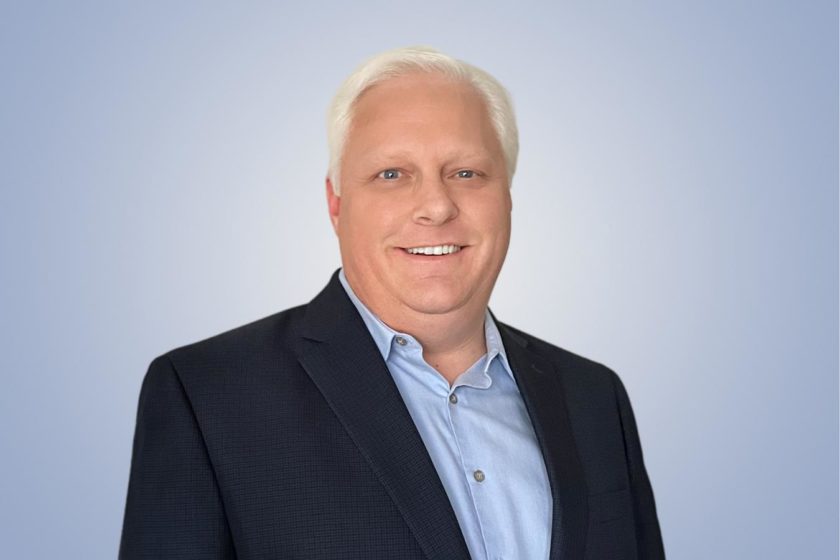News & Insights
Empowering metals manufacturers: creating opportunities in a changing industry
Metal manufacturers are facing huge shifts in every aspect of operations, from rapid growth and reshoring, to talent acquisition and automation. This article looks at how disruption is creating opportunity in metals manufacturing and highlights strategies that Salas O’Brien’s clients are using to gain efficiencies and advantages.

Metal manufacturers are at the crossroads of some of the most transformative shifts the industry has ever seen. From the resurgence of reshoring initiatives to the adoption of groundbreaking automation technologies, these changes are redefining the landscape of metal manufacturing.
This article delves into how these disruptions are not just challenges to overcome but opportunities to seize and offers a glimpse into the strategies that are placing Salas O’Brien’s clients at the forefront of efficiency and competitive advantage.
Growing demand for manufactured metals
The demand for metals is experiencing a significant surge fueled by transformative shifts across multiple industries:
- In the automotive sector, the push towards electric vehicles has spiked the demand for aluminum, essential for lightweighting these advanced vehicles.
- The beverage industry is witnessing a growing need for sustainable metal bottles as an alternative to single-use plastics.
- In aerospace, the expansion into commercial applications has heightened the need for specialized metal components.
- The construction industry is increasingly adopting modular and prefabricated methods, relying heavily on metal structures.
- The electronics sector’s expansion is driving the demand for a range of metals from commonplace to rare earth elements that are vital for various electronic products.
- The energy sector’s evolution is dramatically increasing the demand for key metals like copper, aluminum, steel, and nickel, which are critical in everything from power cables to the infrastructure required to capture and store energy.
- The US’s Infrastructure Bill has created considerable metal demand in North America due to the use of metals in public transportation systems, water and sewer systems, energy infrastructure, bridges, and urban development projects.
This escalated demand combined with logistical pressures and geopolitical tensions are creating challenges (and opportunities) for metals manufacturers. Here are just some of the trends we are seeing with our clients as they adapt to a shifting marketplace:
Strategic reshoring: leveraging global shifts for a competitive edge
The strategic evaluation of reshoring in metals manufacturing presents opportunities that can benefit even global firms. This includes:
- Optimizing supply chain efficiency. Bringing operations closer to major markets can significantly streamline the supply chain for an industry leader. This shift promises reduced logistics costs and enhanced delivery speed, offering greater agility in responding to market demands and fluctuations which is crucial for maintaining leadership in the metals industry.
- Enhanced quality and process control. Tighter control over manufacturing processes can lead to improved product consistency and faster adaptation to industry trends and customer needs, a key differentiator in the competitive metals market.
- Accelerating innovation through proximity. Establishing closer ties with leading research institutions and technology partners can accelerate innovation. This proximity fosters a collaborative ecosystem, enhancing the ability to lead in sustainable practices and advanced material development.
- Building resilience. Reshoring can play a significant role in fortifying long-term resilience for metals manufacturers. By diversifying the geographic spread of operations, a company can better manage global risks, ensuring stable and efficient operation across its value chain.
The startup of new facilities in North America is having a ripple effect and putting pressure on older, less efficient plants. The challenge to reshoring is that it relies on capital investment for setting up new facilities, purchasing advanced equipment, and implementing automation. The investment can’t wait; it has to be timed to the shift in demand, just ahead of the curve.
Salas O’Brien is working with many metals manufacturers to plan new facilities and reinvest in existing ones. These feasibility studies range from retrofitting a single plant to creating efficiencies in new plants across the North American sector. We provide the advice needed up front to determine a project’s viability and help establish the timeline for improvement.
Resolving the talent gap: alternative approaches to meeting an urgent need
The talent gap in the metal manufacturing industry is a pressing challenge, with many companies facing difficulties in attracting and retaining skilled workers. As traditional methods of talent acquisition become less effective, innovative and alternative approaches are essential to bridge this gap.
- Investing in apprenticeship programs. Establishing partnerships with vocational schools and community colleges to develop apprenticeship programs can transform talent acquisition. These programs, which offer practical experience and often lead to full-time roles, build a steady stream of industry-ready professionals.
- Leveraging technology for skill development. Augmented reality (AR) can transform standard operating procedures (SOPs) into interactive, immersive training experiences. By virtually simulating tasks, AR has the potential to shorten the learning curve for mastering new equipment and adapting to updated processes while also facilitating the rapid adoption of best practices across the workforce.
- Promoting manufacturing as a career choice. Showcasing the metal industry’s technological advancements and potential for innovation can attract younger generations looking for tech-forward careers. Initiatives like open days, industry talks at schools, and social media campaigns can be effective in changing perceptions.
- Building relationships for fractional talent utilization. By partnering with Salas O’Brien, companies can access specialized consultants with extensive experience in metals manufacturing. This approach offers an effective solution to the talent gap by allowing businesses to leverage the expertise of seasoned professionals for specific projects or periods and replacing the need for large, full-time engineering departments. This strategy ensures access to top-tier talent and industry knowledge on a flexible, as-needed basis to help get clients to market faster.
The talent gap poses challenges in this rapidly evolving sector, requiring a layered approach of multifaceted solutions for substantial impact.
Digital automation for a new era of efficiency
In every manufacturing sector, discussions about Industry 4.0 are growing more frequent. This term denotes the ongoing digital transformation driven by smart technology and interconnected devices in manufacturing and related industries. It focuses on enhancing automation, improving data exchange, and facilitating real-time analysis.
At Salas O’Brien, we are helping clients implement:
- Digital twins for optimization and to test the impact of process changes. Imagine having a computer model that mirrors your factory’s operations. This tool helps in understanding how things work and finding ways to make them better. It presents real-time data and can predict problems before they happen and suggest improvements. Digital twins can also allow leadership to perform predictive modeling to test ideas and see the impact of different approaches.
- Automated material handling. The new wave of automated material handling systems, including Automatic Guided Vehicles (AGV’s), can communicate seamlessly with other systems within the facility, ensuring a more synchronized and optimized workflow and significantly reducing errors and downtime while improving worker safety.
- Supply chain improvements with digital tracking. Implementing a digital track and trace system offers several advantages such as enhanced visibility, better compliance, improved quality control, and more efficient resource utilization. It also protects manufacturers from fraud and provides proof of compliance and quality if something goes wrong in another manufacturer’s ecosystem.
- Cybersecurity for operational technology (OT). Securing operational technology is as important as improving it. Salas O’Brien provides cybersecurity for OT consulting and utilizes cybersecure methodologies in commissioning to close backdoors and resolve other issues inherent in vendor-installed systems. We work with your IT team to protect connected technologies against data breaches and system intrusions.
Using these digital technologies helps metal manufacturers stay efficient, produce high-quality products, and keep up with the changing industry. It’s all about leveraging the power of technology to make manufacturing more effective.
Pioneering sustainable metal production for a greener future
The metal industry, often overlooked in green strategy discussions, holds a unique advantage due to the infinite recyclability of many metals elements. This positions the industry as a crucial player in the push towards a more sustainable future.
Salas O’Brien is working with manufacturers on sustainable initiatives. Here are some key areas of focus:
- Enhanced recycling and recovery processes. The industry is continuously improving recycling techniques to recover more materials efficiently which is even more important when supply chain issues or geopolitical tensions challenge mining of raw material. This involves not just recycling post-consumer metal products but also recovering metal scraps generated during manufacturing. These efforts significantly reduce the need for virgin raw materials, lower energy use, and decrease environmental impact.
- On-site renewable energy generation. Implementing microgrids powered by solar, wind, or geothermal energy significantly cuts the carbon footprint of metal production facilities. These autonomous energy systems bolster environmental sustainability, energy security, and reduce reliance on conventional power grids.
- Ongoing energy efficiency optimization. By continuously assessing and optimizing energy usage, companies can significantly reduce their environmental footprint, cut down on energy costs, and contribute to a more sustainable future. This proactive approach not only enhances operational efficiency but also aligns with broader environmental responsibility goals. Salas O’Brien’s services include commissioning, retro-commissioning, and ongoing commissioning.
These initiatives showcase the metal industry’s commitment to reducing its environmental impact and establishing a standard for sustainability in the industrial sector, demonstrating that environmental responsibility can coexist with industrial advancement.
How Salas O’Brien can help
Salas O’Brien delivers expert guidance and support to metals manufacturers, helping them navigate the industry’s unique challenges and opportunities. Our tailored solutions range from implementing sustainable practices to leveraging the latest technologies. We equip companies to adapt and thrive in this dynamic sector, ensuring their long-term success. Connect with our contributors below.
For media inquiries on this article, reach out to Stacy Lake, Director of Corporate Communications.

Bernie Becker
Bernie Becker has worked in the metals industry for 42 years, 32 of those with Alcoa in a variety of plant engineering, global engineering, and engineering management positions. He was responsible for best practice implementation, project management consulting, technical leadership, and training for finishing and rolling equipment worldwide. Bernie has supported the Salas O’Brien metals topic for 10 years, and is an expert in web handling and finishing processes, has conducted training seminars, process audits, troubleshooting services, and major projects planning and execution. Bernie serves as a Senior Vice President at Salas O’Brien and directs our group of metals subject matter experts (SMEs). Contact him at [email protected]

Greg O'Brien
Greg O’Brien provides engineering consulting to industrial, manufacturing, and commercial clients. He directs the project team in Salas O’Brien’s Evansville office that provides project budgets and cost estimates, assures code compliance and quality control, and manages the construction bidding process and contracts. Greg serves as a Principal at Salas O’Brien. Contact him at [email protected]